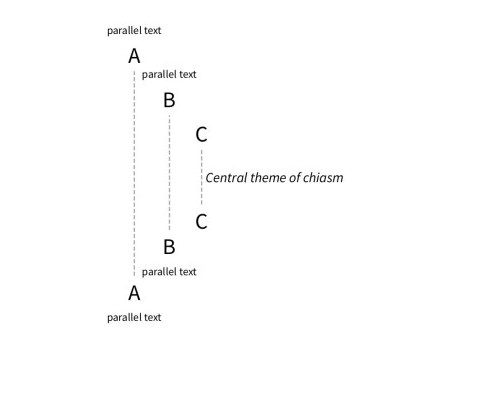Be Still? The Context of Psalm 46:10

This week's Considering Context looks at a popular meditation/peace verse:
“Be still and know that I am God. I will be exalted among the nations, I will be exalted in the earth.” -Psalm 46:10
The post will be divided into three sections: The Common Interpretation of the Text. The Text in Its Original Context, and the Text Application of the Text.
This is a very popular verse, so we should know what it really means, don’t you think?
The Common Interpretation of the Text
I often hear this verse interpreted as a means for quiet meditation on God in order to bring peace to oneself. To be sure, a peaceful, quiet assurance of God is certainly thematic but that is only true, partially, as we will see by examining the full context of this Psalm.
The Text in Its Original Context
There are are a lot of factors that need to be considered when we interpret the Psalms. The most important factor is the type of genre one is reading. Because the Psalms are poetry they must be interpreted within the poetic genre. And Hebrew poetry is much different from English poetry.
Hebrew poetry typically uses parallelisms and structure rather than rhyme in its composition. This may seem a bit odd to us but in an ancient context this style greatly aided in memory since many of these psalms were used during the worship at the tabernacle. When interpreting the Psalms and any type of Hebrew poetry it is a good practice to understand some of the basics. Before moving on to the the interpretation we will spend a little time looking at the basics of Hebrew poetry. For more information I would highly recommend Dr. Mark Futato's book Interpreting the Psalms.
Parallelism is the major defining factor in Hebrew poetry. Scholars have identified several, but the three major categories are synonymous, antithetic, and synthetic. Each will be briefly discussed:
Synonymous – this parallelism has two lines of text that mean the same thing but said in different ways. Psalm 33:2 is a good example:
Synonymous Parallelism
2. Antithetic – this is when two lines are contrasted, showing what one is or should be and what the other should not be. Psalm 1:6 illustrates this form of parallelism:
Antithetical Paralellism
3. Synthetic – often times the author will make a statement and then develop or further elaborate the point. This development is known as synthetic parallelism. Psalm 147:16-17 is synthetic in nature. The explanation of line B is that no one stands before His power, which is pictured as cold and snow:
Synthetic Parallelism
Structure is also an important theme in Hebrew poetry. Like parallelism the structure is usually categorized three different ways: Acrostic, Chiastic or Strophic.
Acrostic – each new line or stroph begins with the next successive letter of the Hebrew alphabet. Psalm 119 is an excellent example of this style. As you can see the first eight verses begin with the letter Aleph and the next eight begin with the letter Bet. This pattern will follow until the end of the Hebrew alphabet has been reached.
Chiastic – the parallels in this structure branch out to a central theme. Then the parallels are reversed until reaching the conclusion. See the screenshot below for an example.
Strophic – this is more of a thematic type of poetry where the lines are grouped together by themes to conclude to a main theme. Note the the thematic elements of the grouped lines in the below Psalm. They culminate in the Lord being the Psalmist’s refuge.
Though it seems a bit much to review all of this it is necessary when interpreting the context for our Psalm. Now, we can look at it in its entirety and interpret it correctly.
The first thing to be noted is that the Psalm is usually not quoted in its entirety. The full text of the Psalm is, “Be still and know that I am God. I will be exalted among the nations, I will be exalted in the earth.”
As you see this verse is a little bit more than simply being still and meditating on God. Our Psalm is of the chiastic structure, paralleling ideas to a central theme and then reversing the parallels. To understand the structure more fully it would be helpful to see the entire Psalm laid out.
As you can see, the Psalm peaks at verse 6: the nations rage, the kingdoms tooter; he utters his voice, the earth melts. The context of the Psalm can be found in 2 Chron 20:1-30, when Jehoshaphat is king and the destruction of Jerusalem seems imminent. God gave His people a remarkable deliverance and this Psalm was written as the response. The culmination at verse 6 is God winning the victory for Jerusalem. This is the theme or central portion of the Psalm, not meditating on God.
Verse 10 falls in parallel to verse 2. Looking a little closer at these two verses helps us even more with the context. verses 2 and 10 state, respectively,
2 Therefore, we will not fear though the earth gives way, though the mountains be moved into the heart of the sea.
10 Be still and know that I am God. I will be exalted among the nations, I will be exalted in the earth.
Examining these two verses side-by-side we quickly see how they relate to one another. Jerusalem is in danger! But the God of Jacob is our refuge, and because He is we won’t be afraid. Be silent and watch God work. He will overthrow our enemies and His Name will be exalted over all the earth.
The second part of our interpretation must deal with the type of parallelism found in verse 10. Synthetic parallels state a single point and then develop or expound upon that idea. Verse 10 is synthetic and the parallel can be seen below.
The parallels are marked with the letters ‘a’ and ‘b.’ Since synthetics expound the meaning of the original statement we must then ask what it means to be still and know the He is God. The two following lines explain the meaning. It is God’s exaltation upon the earth, plain and simple.
The Application of the Text
This might seem to be a killjoy for some because they have clung to this verse during the chaotic times of their lives. While we cannot claim a meditative peace for Psalm 46:10 we can certainly know that God watches over His people and that His deliverance of them will bring greatness to His Name throughout the entire earth.
Steven Long is a blogger at longfortruth.com, along with his brother, Daniel Long.
Steven is a husband, father of 5, and a blogger. He is passionate about informing the Laity on tips for correctly expounding & exegeting God’s Word.















